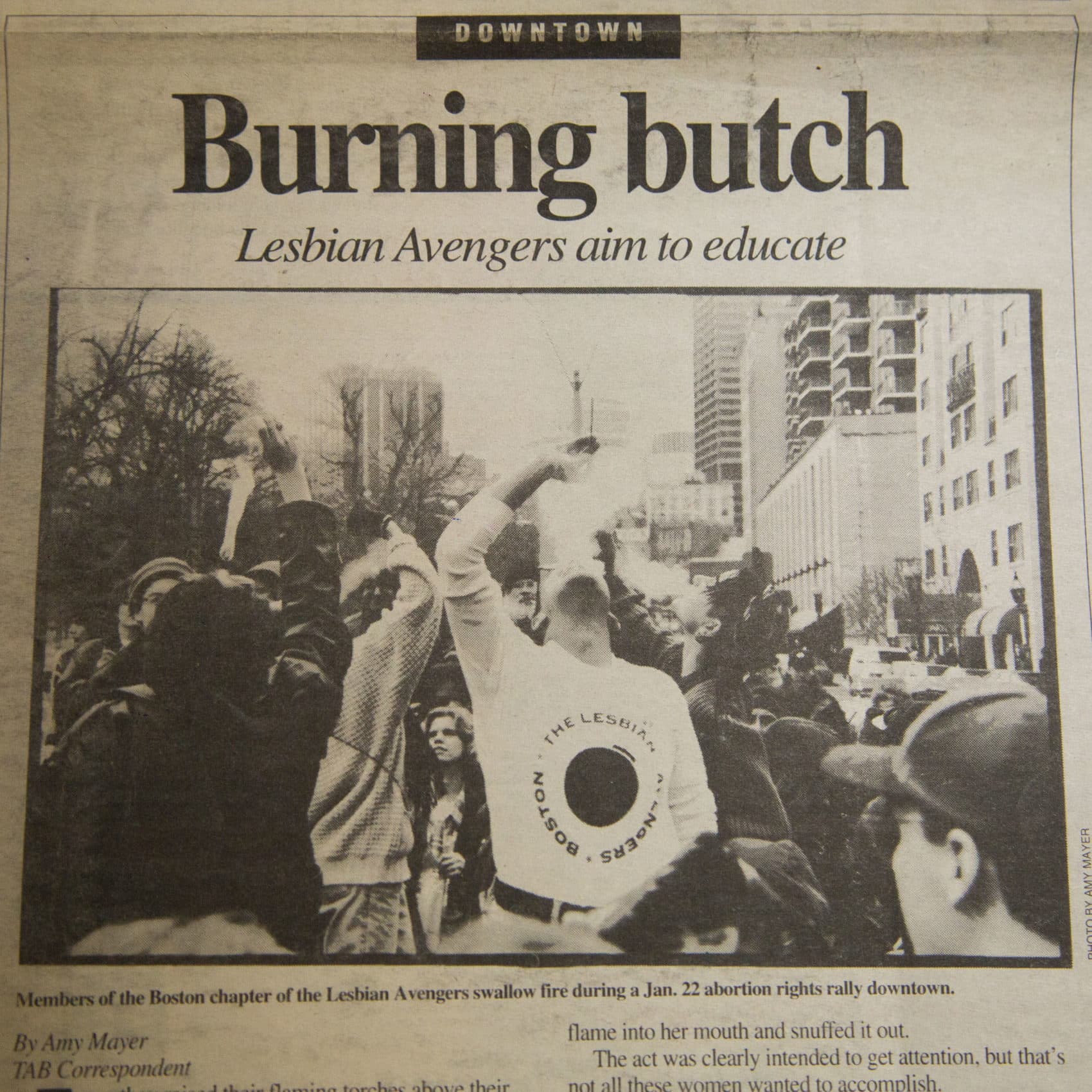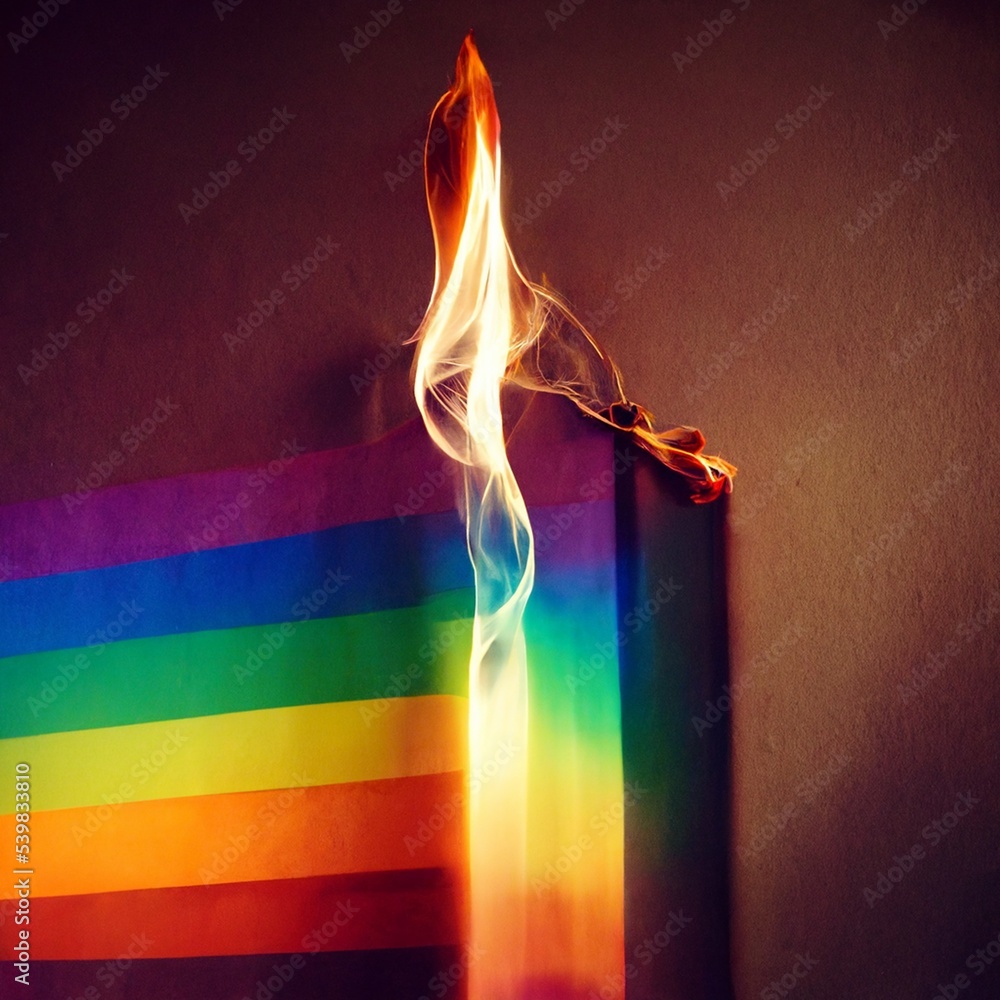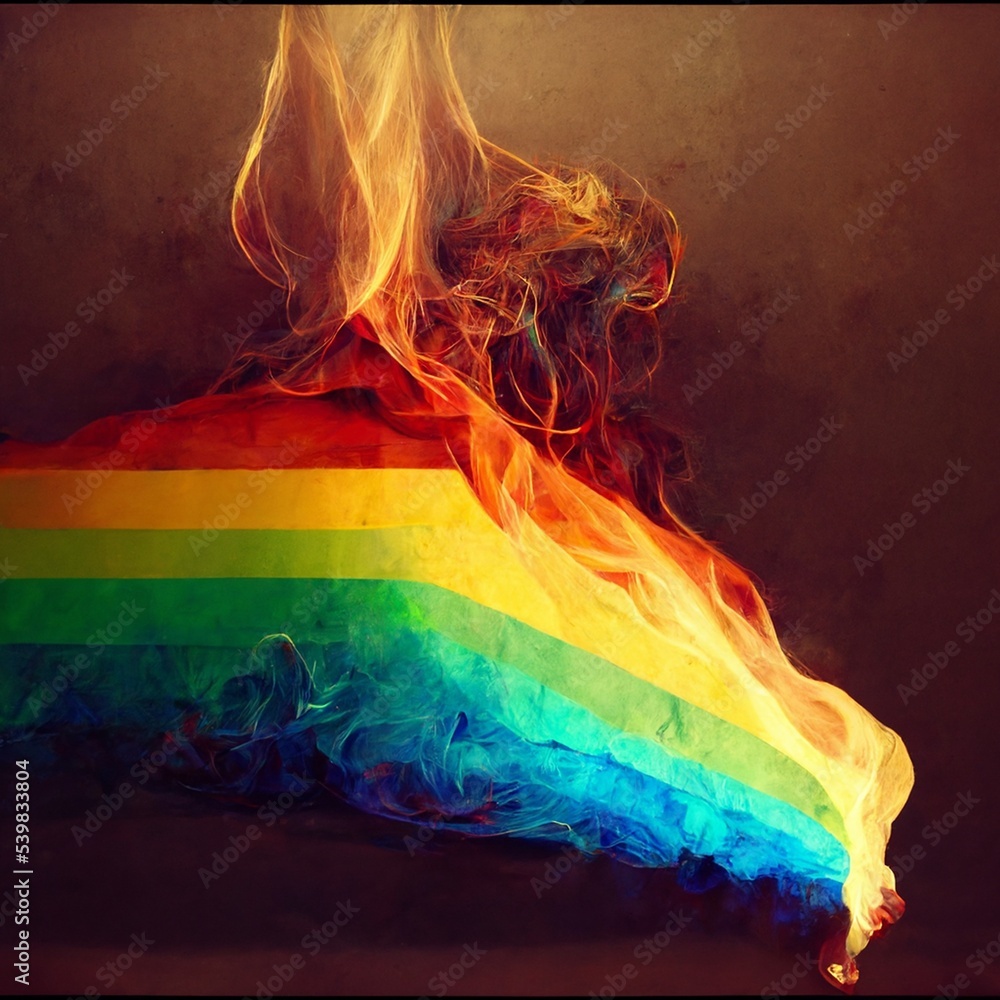Ever wondered about the punchline to the question "what do you call a lesbian on fire"? Well, buckle up because we’re diving into this quirky joke, unpacking its meaning, and exploring why it’s been making waves in pop culture. This isn’t just about a joke—it’s about understanding humor, identity, and how we talk about important topics in today’s world.
Now, before we get into the nitty-gritty, let’s talk about why this phrase even exists. Jokes about identity can be tricky, but they also open doors to meaningful conversations. This particular question has sparked curiosity, laughter, and even some debates. So, if you’re here wondering what it all means, you’re in the right place.
Here’s the deal: humor is one of those things that can either bring people together or push them apart. When it comes to jokes about LGBTQ+ topics, there’s a fine line between playful banter and offensive commentary. In this article, we’re going to explore the origins of this question, its cultural significance, and why it’s more than just a funny line.
Read also:Bella Porch Onlyfans The Rise Of A Digital Sensation
Understanding the Joke: What Do You Call a Lesbian on Fire?
Let’s start with the basics. The phrase "what do you call a lesbian on fire" is part of a classic joke that’s been around for years. It’s a play on words, combining humor with a nod to LGBTQ+ culture. The punchline? "A torch." Get it? It’s a clever pun that works because it ties together two seemingly unrelated concepts: flames and a metaphorical meaning for "torch." But don’t worry if you didn’t laugh at first—it’s one of those jokes that grows on you.
Why This Joke Matters
At first glance, this might seem like just another joke. But when you dig deeper, it’s clear that this phrase taps into something bigger. Humor has always been a tool for addressing serious topics, and this joke is no exception. By using lightheartedness, it opens the door to conversations about identity, representation, and acceptance.
Think about it: jokes about LGBTQ+ topics have historically been used to either mock or celebrate. This particular joke falls into the latter category, serving as a playful reminder of the resilience and creativity within the community. It’s a way of saying, "Yeah, we’re here, and we’re not afraid to laugh at ourselves."
Historical Context: Where Did the Joke Come From?
Like many jokes, the origins of "what do you call a lesbian on fire" aren’t entirely clear. Some trace it back to LGBTQ+ circles in the 1980s, a time when humor was often used as a coping mechanism for the challenges faced by the community. Others believe it gained popularity in the early 2000s, thanks to its clever wordplay and universal appeal.
The Evolution of LGBTQ+ Humor
Humor has played a crucial role in the LGBTQ+ movement, helping to break down barriers and challenge stereotypes. From drag performances to internet memes, humor has been a powerful tool for visibility and acceptance. This joke is just one example of how LGBTQ+ culture uses wit and creativity to navigate complex issues.
But why does this matter? Because humor isn’t just about laughter—it’s about connection. When people share a joke, they’re building bridges and fostering understanding. And in a world where LGBTQ+ individuals still face discrimination, that connection is more important than ever.
Read also:Jada From Bgc The Ultimate Guide To Her Rise Talent And Impact
Breaking Down the Punchline: Is It Offensive?
Now, let’s address the elephant in the room: is this joke offensive? Like many things in life, it depends on the context. For some, the phrase "what do you call a lesbian on fire" is a harmless bit of wordplay. For others, it might feel like a poke at something deeply personal.
Understanding Intent vs. Impact
The key to evaluating humor is understanding the difference between intent and impact. While the intent behind this joke may be playful, its impact can vary depending on who’s telling it and who’s hearing it. For members of the LGBTQ+ community, the joke might feel like a celebration of identity. For outsiders, it could come across as insensitive or dismissive.
It’s important to remember that humor is subjective. What one person finds funny, another might find hurtful. That’s why it’s crucial to approach jokes like this with sensitivity and an open mind.
Exploring LGBTQ+ Representation in Media
Representation matters, and it’s no secret that LGBTQ+ stories have been gaining traction in mainstream media. From movies to TV shows to social media, there’s a growing recognition of the importance of diverse voices. But how does a joke like "what do you call a lesbian on fire" fit into this larger narrative?
The Role of Humor in Representation
Humor has always been a powerful tool for representation. It allows people to see themselves in new and unexpected ways. When LGBTQ+ individuals are portrayed in media, humor can humanize their experiences and make them more relatable to a broader audience.
Take, for example, popular TV shows like "RuPaul’s Drag Race" or "Queer Eye." These programs use humor to tackle serious topics, from acceptance to self-discovery. By doing so, they create a space where people can laugh, learn, and grow together.
Common Misconceptions About LGBTQ+ Humor
There are plenty of misconceptions about LGBTQ+ humor, and it’s worth addressing them head-on. One of the biggest myths is that all LGBTQ+ jokes are inherently offensive. In reality, humor can be a powerful force for good when used responsibly.
Setting the Record Straight
- Not all LGBTQ+ jokes are created equal. Some are playful, while others can be hurtful.
- Context matters. A joke told by a member of the community might land differently than one told by an outsider.
- Humor can be a tool for connection, but it requires empathy and understanding.
At the end of the day, the key is to approach humor with respect and an open heart. By doing so, we can create a world where laughter brings people together instead of driving them apart.
The Importance of Inclusivity in Humor
Inclusivity is more than just a buzzword—it’s a mindset. When it comes to humor, inclusivity means creating content that resonates with a wide range of audiences. It’s about finding common ground and celebrating differences without alienating anyone.
Tips for Inclusive Humor
- Listen to feedback. If someone finds a joke offensive, take the time to understand why.
- Be mindful of language. Words matter, and they can have a lasting impact on how people feel.
- Use humor to build bridges, not walls. Focus on bringing people together rather than dividing them.
By embracing inclusivity, we can create a culture where everyone feels seen, heard, and valued. And isn’t that what humor is all about?
What Do You Call a Lesbian on Fire? The Bigger Picture
As we’ve explored, this joke is more than just a clever play on words. It’s a reflection of how we approach identity, humor, and connection in today’s world. By unpacking its meaning, we gain a deeper understanding of the power of laughter and the importance of empathy.
Moving Forward with Understanding
So, what’s next? The answer lies in continuing the conversation. Whether you’re telling jokes, watching TV, or scrolling through social media, take a moment to consider the impact of your words. Humor has the power to change lives, and when used responsibly, it can make the world a brighter, more inclusive place.
Conclusion: Laughing Together, Growing Together
In conclusion, the question "what do you call a lesbian on fire" is more than just a punchline—it’s a conversation starter. It challenges us to think about how we use humor, why representation matters, and how we can create a world where everyone feels welcome.
So, the next time you hear this joke, take a moment to reflect. Is it making you laugh, or is it making you think? Either way, it’s a reminder that humor has the power to bring people together—if we let it.
Now, it’s your turn. Share your thoughts in the comments, or check out some of our other articles on LGBTQ+ topics. Together, we can keep the conversation going and make the world a little brighter, one joke at a time.
Table of Contents
- Understanding the Joke: What Do You Call a Lesbian on Fire?
- Historical Context: Where Did the Joke Come From?
- Breaking Down the Punchline: Is It Offensive?
- Exploring LGBTQ+ Representation in Media
- Common Misconceptions About LGBTQ+ Humor
- The Importance of Inclusivity in Humor
- What Do You Call a Lesbian on Fire? The Bigger Picture
- Tips for Inclusive Humor
- Moving Forward with Understanding
- Conclusion: Laughing Together, Growing Together


